Pune Man Quits Job to Learn Bread-Making in Japan, Opens Unique Bakery Back Home
After repeated failures, Rahul Deo from Pune flew to Japan twice to learn baking soft, fresh Japanese bread and open 'Tokyo Bakery'
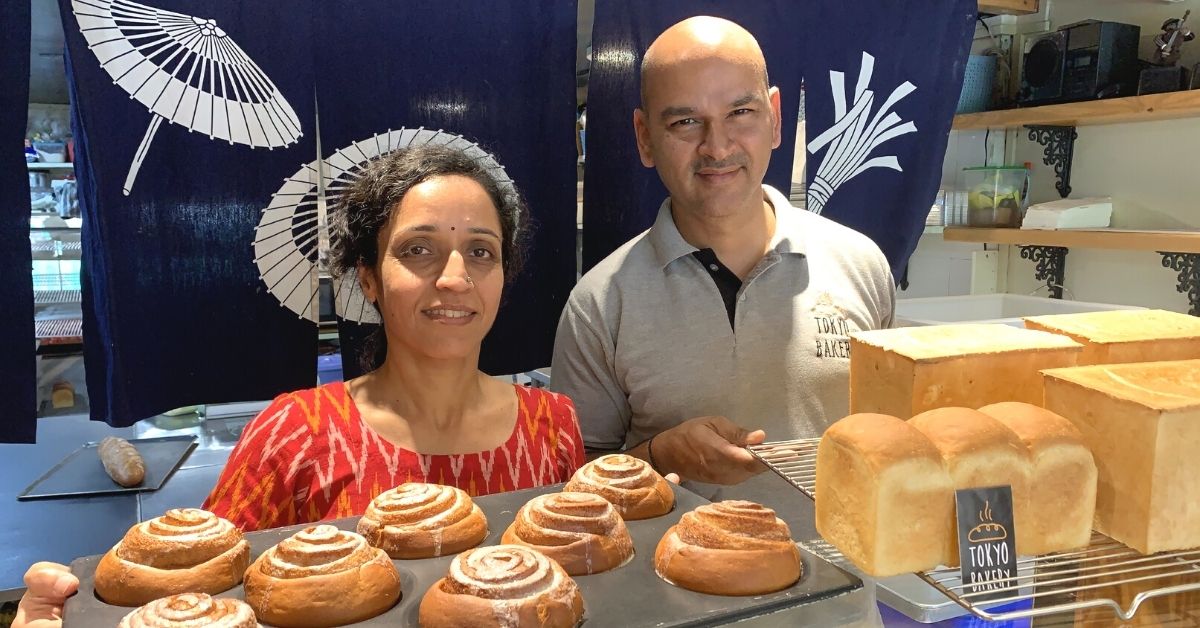
The aroma of freshly baked bread wafting from a modest albeit slightly hidden bakery in Pune never fails to tempt me to stop for a loaf or to try some warm cakes fresh from the oven.
Tokyo bakery, as the name suggests, offers probably the softest Japanese bread that I have had the good fortune of trying.
Started by Rahul and Arundhati Deo in 2017, the bakery offers a range of Japanese bread that claims to be chemical-free, “without any additives or preservatives” and, of course, always fresh from the oven.
Japanese loaf, melon pan, anpan, curry bread and custard bun are some of the traditional Japanese bread offered at this bakery along with 14 other variants.
But what’s interesting to note is that neither of the partners has ever been a baker.
After graduating as an electronics engineer from Pune, Rahul spent about 13 years in the IT industry. His interest in learning the Japanese language in 1990 eventually paved way for him to become a successful baker.
“After graduating, I tried doing a business in the field of electronics. One day, I found people lining up in front of an institute which got me curious. They were queueing up for courses in a foreign language,” Rahul says.
Breaking the language barriers
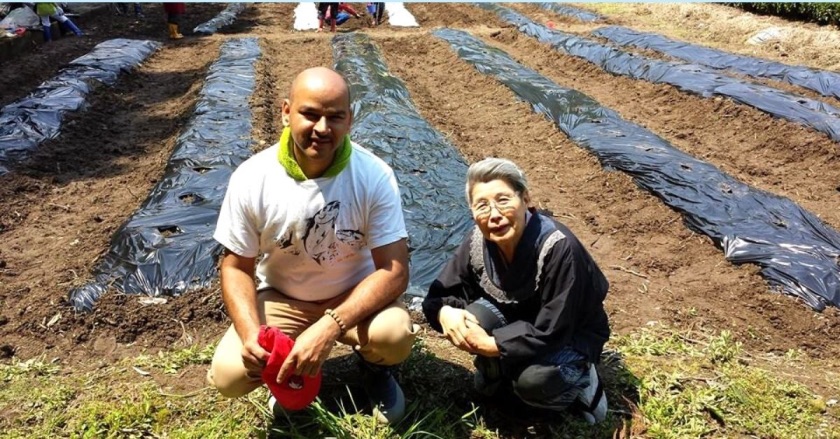
With a desire to learn a language that does not require the use of English letters, Rahul signed up to learn Japanese. “My interest in the subject grew. Over the years, using electronic components like chips and other materials, I realised, often came with Japanese specifications. So, I thought it would be a good idea to learn the language of a country that is technologically advanced,” he adds.
After studying Japanese for three years, Rahul bagged a job in Fujitsu in Pune.
Given his proficient language skills, the company offered him the opportunity to travel to Japan. The IT professional then married and made Japan his home from 1997 until 2008.
“In June 2008, we decided to return to India for good, and I joined an IT company in Pune. But then recession hit and made the situation worse. That’s when I decided to quit and continue working as a consultant with Japanese companies,” Rahul says.
But over time, he realised that he missed the freshly baked soft bread of Japan. “There are community bakeries in Japan that are very popular. In India, when people fall ill, doctors often discourage patients from eating bread, but in Japan, the doctors ask patients to stop eating rice and change their diet to include bread. The bread I ate here from the grocery store was stale and pumped with chemicals like emulsifiers, preservatives and stabilisers,” he adds.
Holding a permanent resident visa, Rahul decided to explore opportunities in Japan. “I also thought that I could probably learn to bake bread for my own personal interests, too,” he says.
Little did the IT professional know that the trip would change his life entirely.
Baking my bread and eating it too
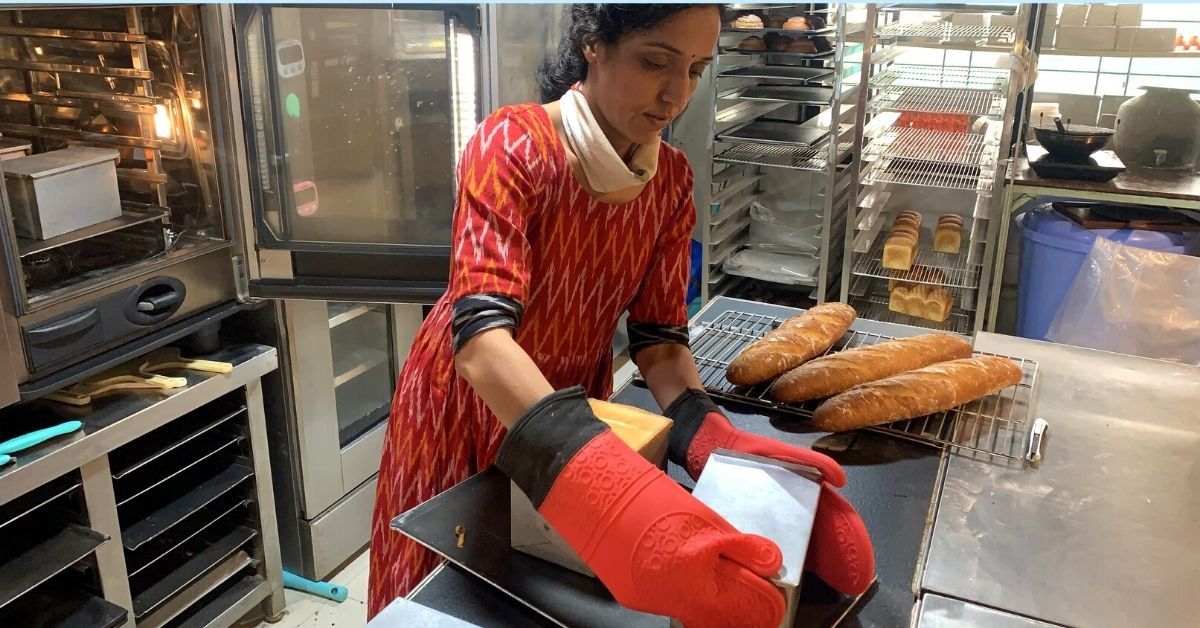
Rahul flew to Japan and also managed to find a job. During one of his meetings with a friend, he was introduced to a 75-year-old woman named Soho Nakano.
“Soho Sensei (teacher in Japanese) is a painter, and she was intrigued by the fact that an Indian visited a traditional painting workshop. During our talks, I expressed interest in learning to bake bread among other topics of discussion,” Rahul says.
Soho also requested to arrange a cross-cultural study tour of her 20 students in India. “We all flew together for an India tour in 2014 and everyone complained about the bread they consumed, even in five-star hotels,” Rahul says.
Soho then advised Rahul to try baking good bread in India. “I agreed, and she arranged a five-day training session with the renowned baker Tsunetaka Kawakami,” Rahul says.
After four months of his newly acquired job in Japan, he quit and returned to India with a will to make the best Japanese bread.
But six months of effort still wasn’t enough for Rahul to get the bread right. “I thought it was the ingredients like water, flour, yeast and salt which were different here,” he says.
To test his theory, Rahul sent some flour to one of his Japanese friends. “The bread came out well. The water and yeast were the only determining factors for the soft dough, I assumed,” he says.
Back to basics
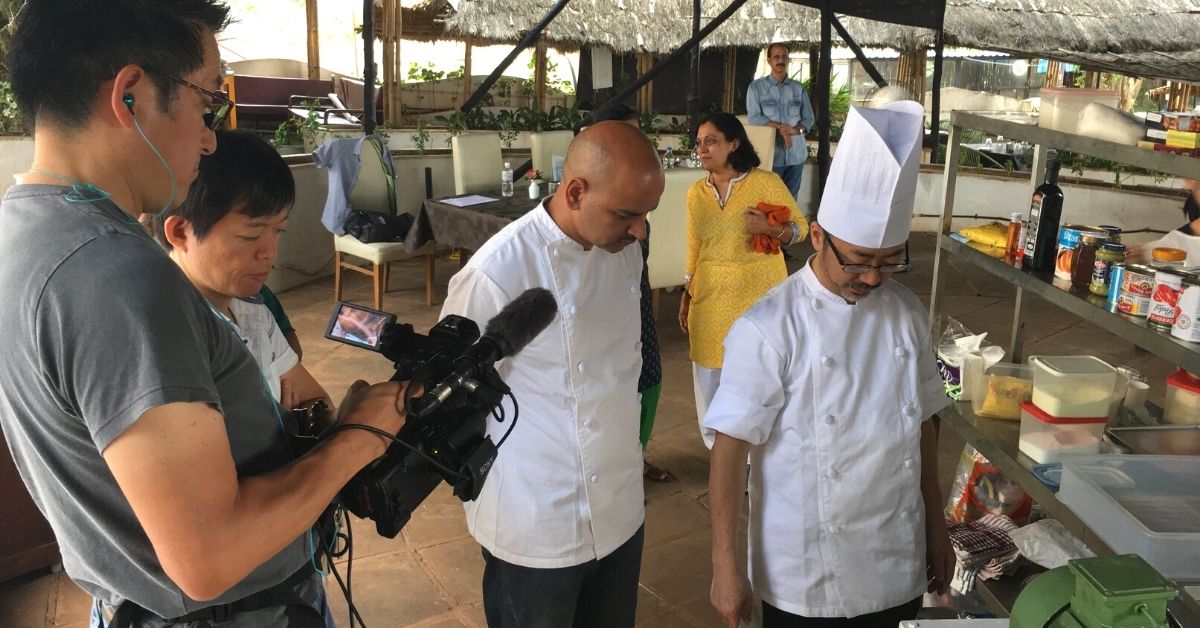
In 2015, frustrated with his failed attempts, Rahul flew to Japan determined to get his bread right. “I reached out to the baker Kawakami and carried Indian ingredients this time. The bread turned out beautifully. Recognising my passion, the baker offered me a job,” he adds.
The IT professional-turned-baker says he was offered a generous salary and was even made to handle business overseas along with learning baking.
Having always worked in an office environment and following a sedentary lifestyle, Rahul suddenly found himself standing all day, working the dough.
“After a week of taking the job, I started getting negative thoughts. I felt like it was a wrong decision,” Rahul says, adding that he slowly got accustomed to the new environment.
After eight months of learning all the skills and documenting notes with the smallest of details required for baking, he returned in January 2016. “Despite all attempts, I failed again,” Rahul says.
Arundhati, his partner who works as a Life Insurance Corporation agent, also tried her hands at getting the dough right. “Rahul shared his notes and techniques about his learnings. We changed methods, experimented, but the bread was nowhere close to selling it to the customers,” Arundhati says.
Inviting the experts
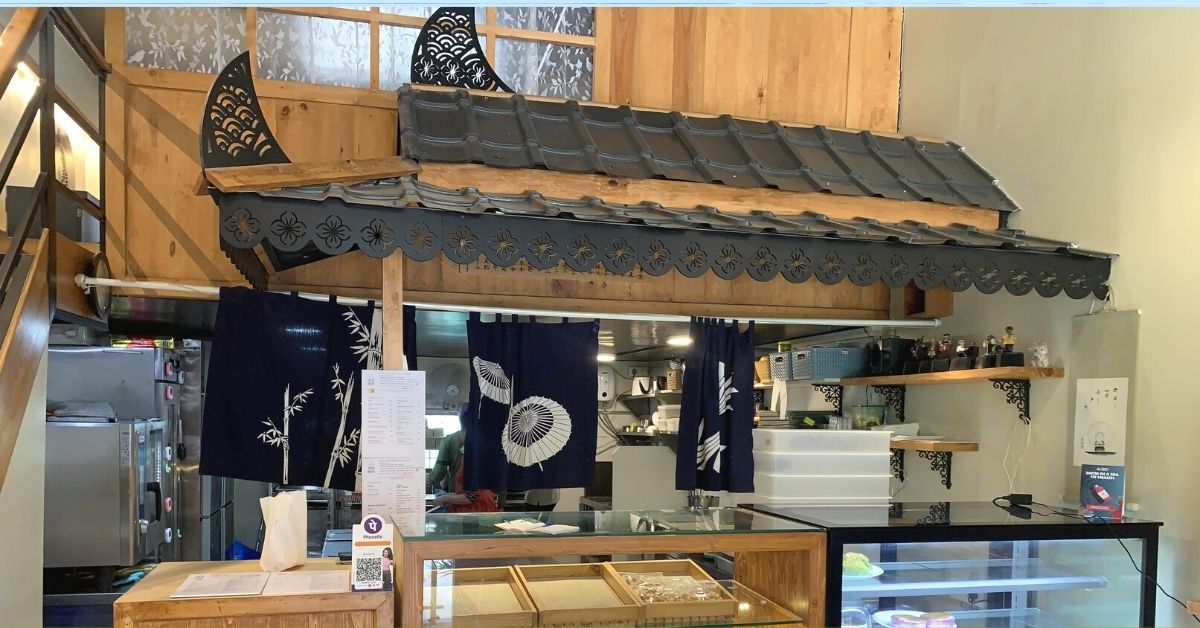
Arundhati says that her husband even thought of importing the flour to make the bread but that would be an impractical choice.
Rahul had almost given up assuming he would never be able to bake good Japanese bread. That is when another opportunity presented itself.
“Kawakami invited me to Japan for a television shoot for a production company who wanted to film him teaching a foreigner. But, just then I shared an idea inviting the crew and Kawakami to India for the shoot instead,” Arundhati says.
Fortunately, the parties agreed, and in October 2016 a venue was booked, to arrange for the shoot.
Rahul says though the parties decided to visit India, he did not have any equipment. “I roamed the city in search of renting out an oven, buying equipment, moulds and other bakery items required for the setup. After getting everything in place a night before the crew’s arrival and inviting 60 guests, the four-hour shoot was a success,” the baker says.
“It was unbelievable to see Kawakami baking beautiful bread with all Indian ingredients. It seemed like he conjured about 15 types of bread like a magician straight out of the oven,” Rahul says.
The couple then bought a commercial oven and with more learnings from the baker, worked for the next quarter, perfecting their bread.
The rising of the bread
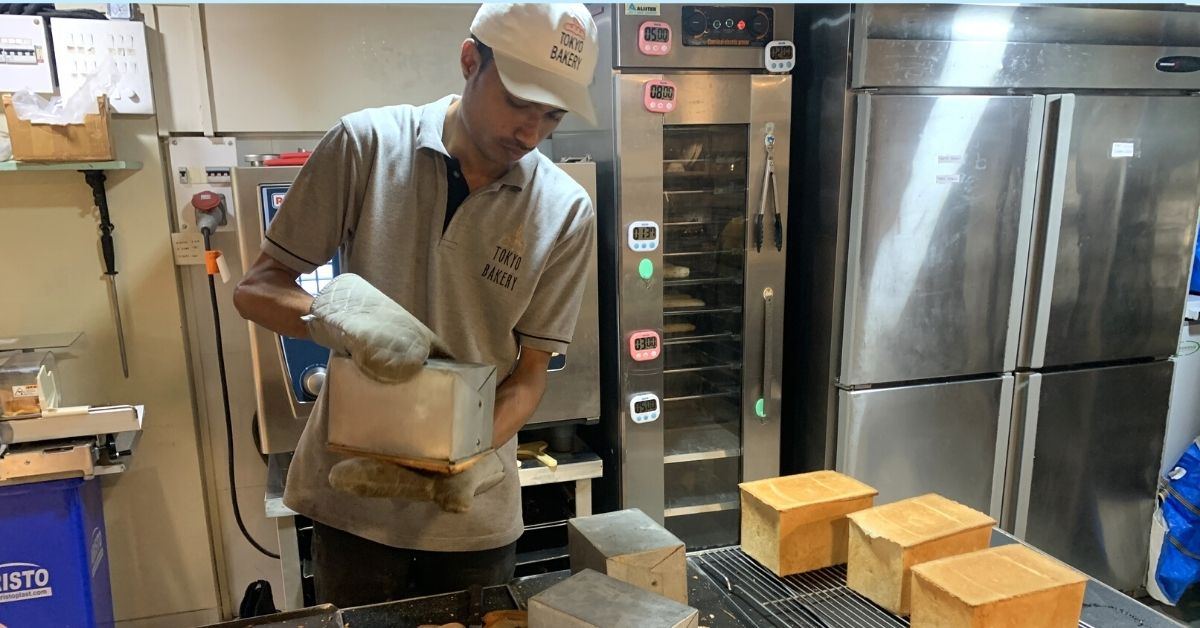
“In four years, we failed hundreds of times before we started sharing it with friends. Slowly, they started paying us and became our initial customers. Word spread and Japanese expats started buying from us too. On a good day we baked 100 loaves of bread for the customers,” Rahul says.
By June 2017, the couple had a steady stream of customers but the thought of opening a bakery never occurred to them until Rahul’s Soho teacher called him.
“Soho became curious about my progress and called to inquire. My teacher was surprised to know that after years of learning to bake, I did not own a bakery. She also informed me about her trip with 23 students to India,” Rahul says.
He adds that she also expressed it to be her dying wish to see his bakery. “Soho is a motherly figure to me, and she wanted me to have my professional setup,” Rahul says.
It was a little less than three months that the couple rushed through everything from finding the right equipment to scale the products commercially and finding a place.
After much struggle, a friend ended the hunt for their bakery by offering his shop to Rahul in a residential township at Bhugaon, about 15 km from Pune.
On 11 September 2017, the Deo family with Soho and her Japanese students inaugurated the Tokyo bakery.
The bakery started doing well by earning Rs 1 lakh a month, which helped maintain the business. For the next six months, the couple swept the floors, baked loaves of bread, cleaned the dishes and sold the products by themselves.
What’s next?
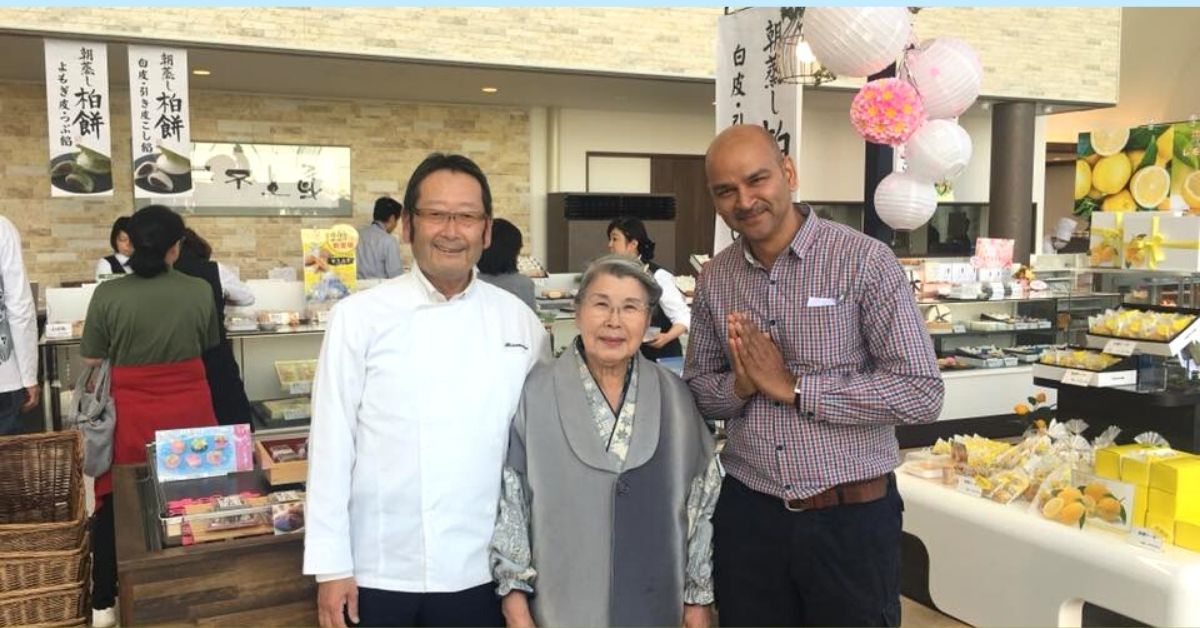
By October 2019, with two well-trained staff, the team of four moved to Baner to set up a more commercial space to improve the business multifold. The couple sold bread to Mumbai and Ahmedabad and a few from the Japanese community every fortnight.
All the orders are currently made through word of mouth as the bakery has no website or social media page for promotion.
Arundhati says her experience of taking Indian food cooking classes in Japan helped her to standardise the recipes. “Breaking down the techniques helped to train the staff. The quality of flour differs in each batch in India and adaptations have to be made accordingly. This comes through experience,” Arundhati tells The Better India.
Rahul adds that the bread recipe has evolved to suit the Indian palate. “There is also a notion among Indians that a bakery means cake. To cater to these demands, we have recently introduced cakes and pastries,” he adds.
The couple plans to train their younger son, Parth, in Japanese pastry-making in the coming year as well. “He expresses interest in baking and wants to experiment with pastries and is heading towards that direction,” Rahul adds, expressing that his ultimate wish is to have a bakery cafe. “I imagine having a 1,000 sq feet space where people can sit and enjoy the bread and sandwiches with beverages. I want Arundhati to experiment with new bread and I will focus on marketing.”
(Edited by Yoshita Rao)
If you found our stories insightful, informative, or even just enjoyable, we invite you to consider making a voluntary payment to support the work we do at The Better India. Your contribution helps us continue producing quality content that educates, inspires, and drives positive change.
Choose one of the payment options below for your contribution-
By paying for the stories you value, you directly contribute to sustaining our efforts focused on making a difference in the world. Together, let’s ensure that impactful stories continue to be told and shared, enriching lives and communities alike.
Thank you for your support. Here are some frequently asked questions you might find helpful to know why you are contributing?


This story made me
-
97
-
121
-
89
-
167













